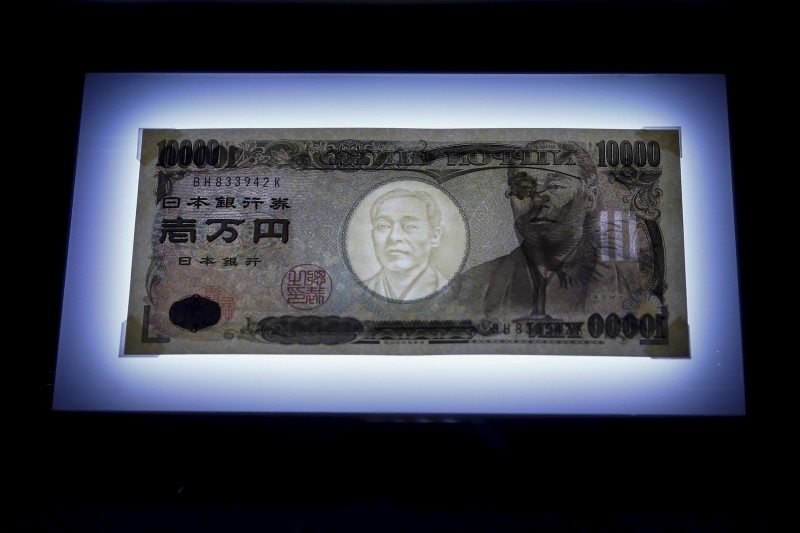Investing.com - The yen held weaker early Monday in Asia as investors awaited gross domestic product figures from Tokyo and trade data from China where markets open after a week-long holiday.
USD/JPY changed hands at 113.56, up 0.30%, while AUD/USD traded at 0.7107, down 0.01%. EUR/USD traded at 1.1236, down 0.17%.
Markets in both the U.S. and Canada will be closed for national holidays.
In the week ahead investors will be watching U.S. inflation data for indications on whether the Federal Reserve will raise rates at all this year. As well, European Central Bank President Mario Draghi is to testify on monetary policy before the European Parliament's Economic and Monetary Affairs Committee, in Brussels.
On Monday, China reports trade data for January with exports seen down 1.9% year-on-year, and imports down 0.8% for a trade balance of $58.85 billion. However, the National Bureau of Statistics isn't releasing retail sales, industrial output or fixed-asset investment figures this week because the timing of the Lunar New Year holiday, which changes every year, distorts the data too much to make any comparisons meaningful.
During the break, China's central bank governor Zhou Xiaochuan said in an interview at the weekend there is no basis for continued yuan depreciation.
In an wide-ranging interview with financial magazine Caixin, Zhou spoke during a week-long holiday in China with markets shut, warning the PBOC won't allow speculators to dominate market sentiment, and downplayed concerns over the sharp decline in the country's foreign-exchange reserves over the past few months.
Also on Monday, in Japan, capacity utilization for December month-on-month is due as well as industrial production expected down 1.3% and the tertiary industry activity index expected at a gain of 0.1%. The Cabinet Office is also scheduled to release preliminary October-December GDP data.
The U.S. dollar index, which measures the greenback’s strength against a trade-weighted basket of six major currencies, was last quoted at 95.99.
Last week, the dollar regained ground on Friday after forecast beating U.S. retail sales figures for January supported the view that the Federal Reserve is likely to stay on a tightening path as other world central banks ease monetary policy.
The Commerce Department said retail sales rose 0.2% last month, beating expectations for an increase of 0.1%.
Retail figures used to calculate gross domestic product, which exclude cars, fuel, building materials and food services, rose 0.6% in January after a 0.3% fall in the previous month.
The upbeat data boosted the dollar against the yen, with USD/JPY up 0.7% at 113.21 in late trade, extending a pullback from 15-month lows of 110.96 set on Thursday.
Despite the rebound in the dollar, the pair still ended the week down 3.19% as persistent concerns over slowing global growth, the effects of negative interest rates on banks and falling oil prices underpinned demand for the safe haven yen.
The dollar was also higher against the euro and the Swiss franc, which tends to be bought by investors in times of risk aversion.
In the euro zone, data on Friday showed that the economy grew just 0.3% in the fourth quarter, matching growth in the previous quarter.
The weak data added to pressure on the European Central Bank to ramp up its monetary easing program as concerns over the outlook for the global economy mount.
